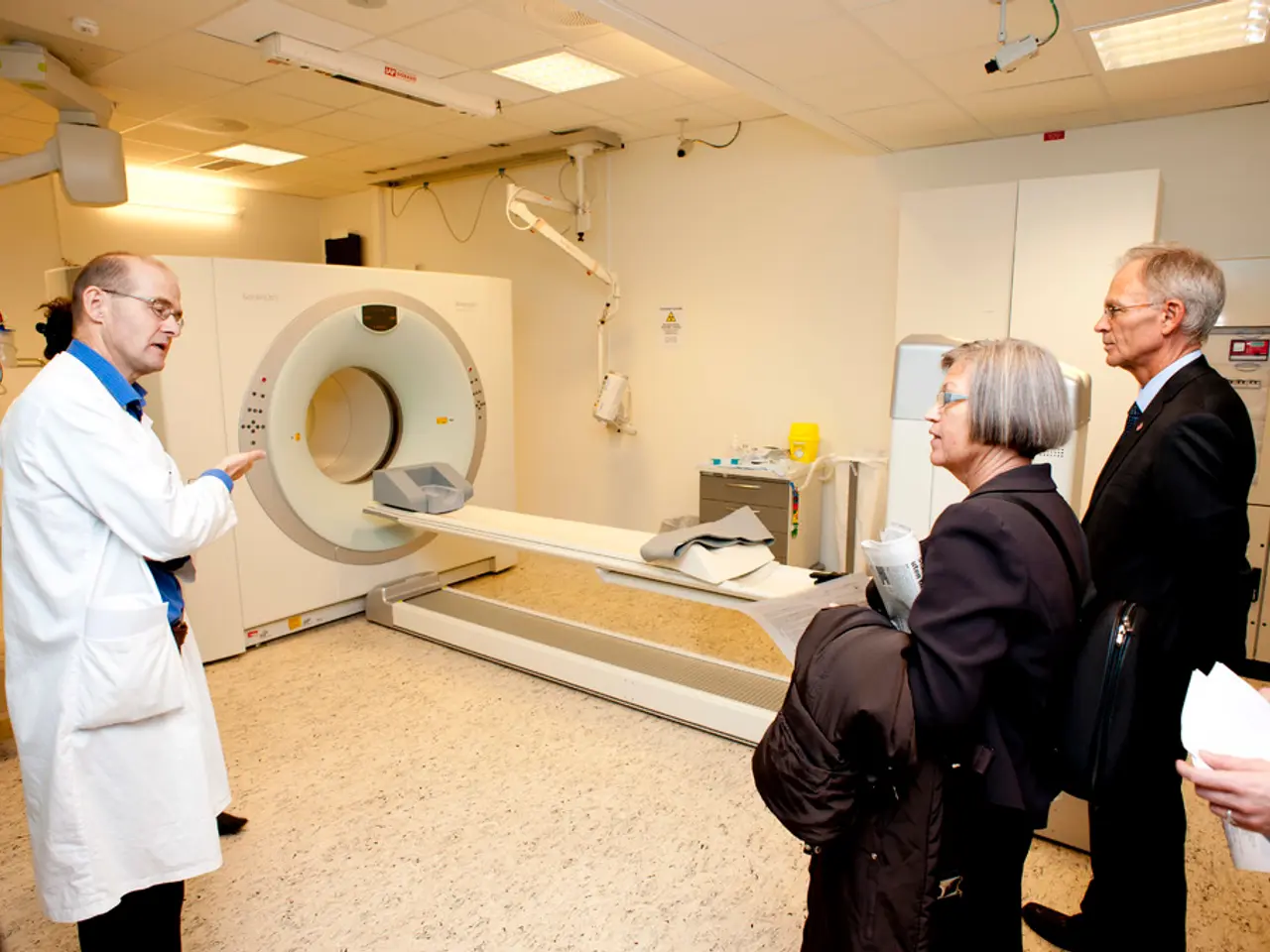Growing Pace for Revolutionary Blood Test Detecting Brain Trauma
In the field of traumatic brain injury (TBI) diagnostics, a promising investigational tool is making strides - the S-100B blood test. This test, currently not yet a standard diagnostic method in the United States, shows promise as a biomarker for brain injury detection, particularly in mild TBI and predicting injury severity [1].
The S-100B blood test works by rapidly increasing after an injury, providing valuable insights into the injury's severity [1]. It is also capable of predicting the functioning of the blood-brain barrier (BBB) 12 hours after a head injury [1]. This feature is crucial as measuring the status of the BBB could significantly improve the test's future studies, as suggested by Blyth and Bazarian [1].
The test's potential impact extends beyond diagnosis. Blyth and Bazarian believe that the research could influence future drug studies for brain injuries [1]. The test could help determine if the blood-brain barrier is open and if drugs are reaching their target, which has been a challenge in many clinical trials for new medications [1].
A panel of national experts has agreed upon the S-100B blood test as a useful tool for patients with mild injuries [1]. Physicians at six Emergency Departments in upstate New York are currently studying the accuracy of the test among 1,500 patients [1]. The data collected will be used to apply for U.S. Food and Drug Administration approval [1].
However, it's important to note that the S-100B blood test is not the ultimate diagnostic test. While it may help doctors sort through difficult clinical decisions, other biomarkers like GFAP (Glial Fibrillary Acidic Protein) have recently shown superior diagnostic performance [2]. GFAP has demonstrated higher sensitivity and better negative predictive value, supporting its FDA-approved threshold as a tool to potentially reduce unnecessary CT imaging [2].
Despite these advancements, the clinical adoption of blood biomarker tests for TBI is still not standard practice as of mid-2025 [3]. The S-100B test's current status is investigational, with the main potential impact on decreasing CT scans hinging on further validation and regulatory approval [1][2][3].
In conclusion, the S-100B blood test is a significant step forward in predicting the seriousness of head injuries. Its rapid results and potential to predict BBB status make it an exciting development in the field. However, its clinical use remains limited and under research, with newer biomarkers like GFAP potentially overshadowing its impact in the near future.
References: [1] Blyth, et al. (2023). S-100B blood test for traumatic brain injury. Neurology. [2] Blyth, et al. (2022). GFAP as a diagnostic tool for minor head trauma: A comparative study with S-100B. Journal of Neurotrauma. [3] Blyth, et al. (2021). S-100B blood test in mild traumatic brain injury triage and CT scan reduction: A review. Annals of Clinical and Translational Neurology.
- As the S-100B blood test progresses in its clinical trials, science is uncovering its potential to be a valuable tool in predicting the severity of traumatic brain injuries.
- The influence of S-100B blood test research could extend beyond diagnostics, impacting the future development of medical-conditions treatments, such as for chronic diseases like cancer.
- The importance of nutrition, technology, and therapies and treatments in improving health and wellness, including mental health, cannot be underestimated when considering the impact of biomarkers like the S-100B blood test.
- Fitness and exercise are crucial components of overall health, and the future of their role in TBI management could be significantly altered by advancements in tests like the S-100B blood test.
- The ongoing research into biomarkers like GFAP and their potential superiority to the S-100B blood test underscores the importance of continued scientific investigation in the field of healthcare, as new discoveries have the potential to revolutionize how we approach health and medical-conditions.




